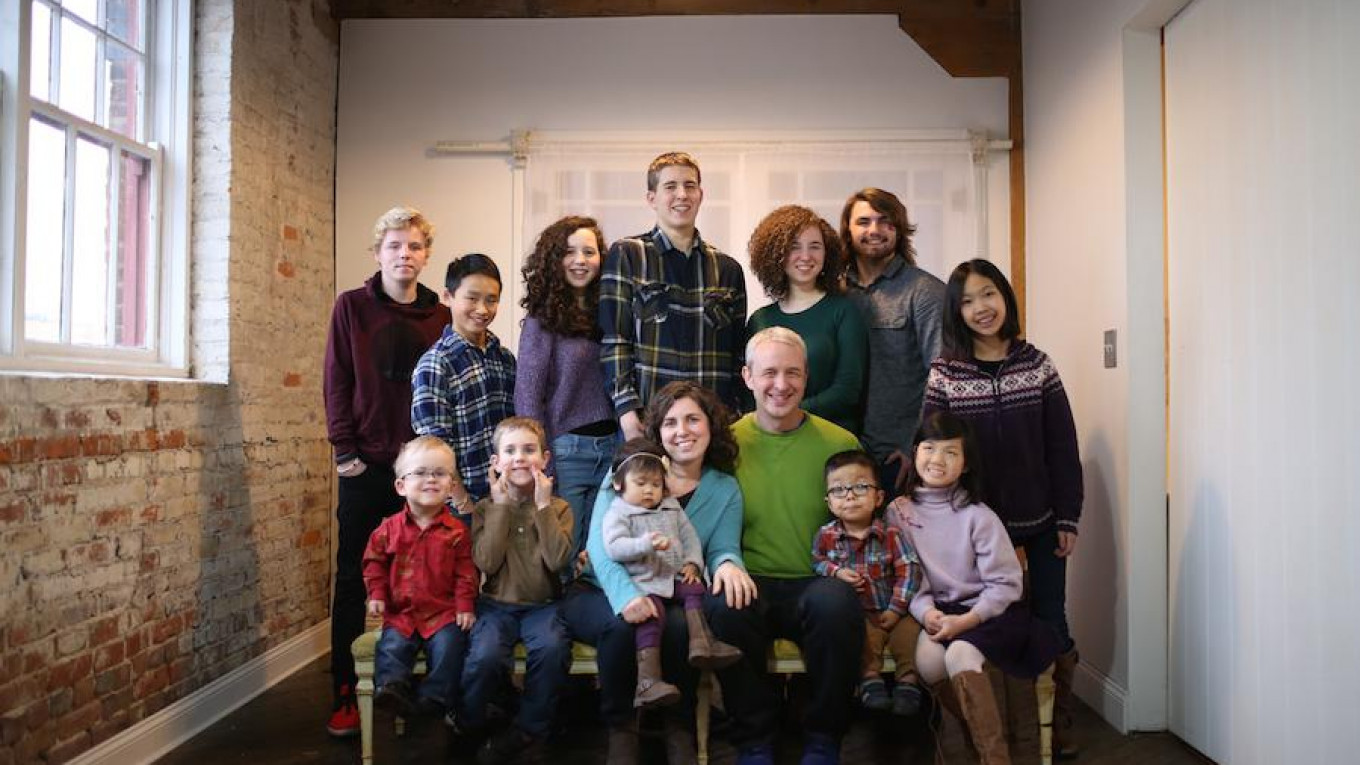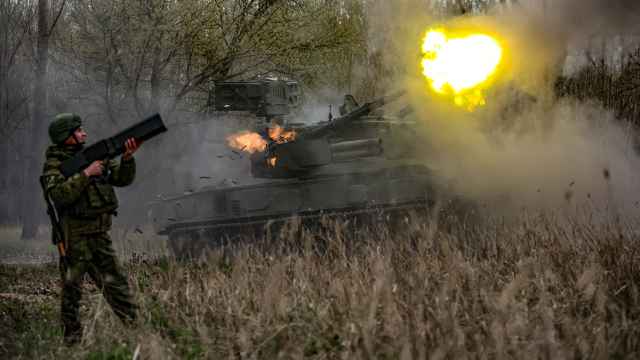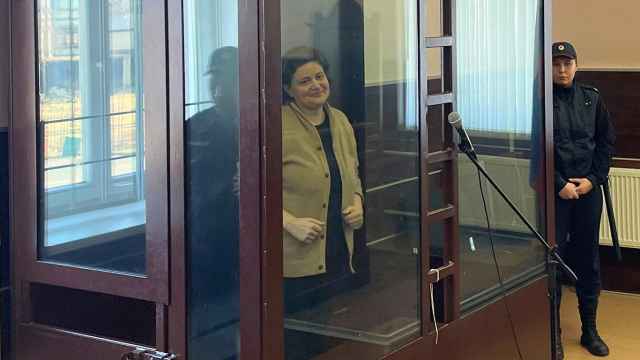Lara (not her real name) was in the process of adopting a 2-year-old boy from Russia in 2012 when its parliament passed the notorious Dima Yakolvev law putting a halt to her plan.
Letters to U.S. President Barack Obama, hours of conference calls with U.S. officials got her — and other disappointed parents — nowhere. She was crushed.
But four years later — in January this year — Lara read something that gave her a glimmer of hope, hope that Russia’s ban on U.S. adoptions would be lifted and she could finally adopt the boy she already considered her son.
It was a quote from Anna Kuznetsova, Russia’s children’s rights ombudswoman: “Our first task is to review how children, who are already there, are doing,” she told reporters in response to a European Court of Human Rights (ECHR) ruling that Russia’s ban illegally discriminated against U.S. families. “If everything is fine, we can start asking what to do with the law.”
If Russia’s authorities knew how well their children were doing in the U.S., Lara thought, they would allow her and 200 other families to finalize adoptions that stalled four years ago.
In fact, Lara said she had repeatedly written to Russia’s former children’s rights ombudsman after the ban took effect in January 2013, imploring him to visit her home and see how her first adopted son from Russia was thriving in the United States.
“We have nothing to hide,” she told The Moscow Times. “Thousands of families would gladly show [Russian authorities] how well their children are doing if it would lift the ban.”
Tracking Down Children
Russia’s 2013 ban on U.S. adoptions, the Dima Yakovlev law, was named after an adopted Russian boy who died in the U.S. in 2008 after his adoptive father accidentally left him in a car.
The move was politically-motivated retaliation against the United States at a time of geopolitical tension that left more than 200 U.S. families mid-adoption in the lurch. Forty-five families successfully contested the law in the ECHR in January — Russia vowed to appeal the decision ahead of the April 2017 deadline.
In the years after the ban, Russian officials justified it with Kuznetsova’s recent claim: Russian children adopted in the United States are abused by their adoptive families and there are no mechanisms for Russia to track the children or protect them from maltreatment.
But U.S. families who have adopted from Russia disagree. “This is just not true,” Lara told The Moscow Times. Nine other American families also say that Russian officials had access to adopted Russians.
“For three years following the adoption,” explains Anne Lockard-Heirigs, a mother of two girls adopted from Russia, “the family is required to submit post-placement reports — detailed documents about how well the child is adjusting to the new life.”
These reports are compiled by a social worker four times in the first three years of adoption. The reports are filed to the adoption agency, which forwards them to Russia’s Education Ministry or local government offices.

One report seen by The Moscow Times is an elaborate, 11-page description of the adopted child’s health, development, and living conditions. It describes the adoptive family’s history, finances, relationship with the child. The report includes several large photos.
Even though compiling these reports costs a family between $1,000 and $2,000, there was no way around it. “If you don’t send the report in time, the agency would come after you and make you do it,” Lara says.
It was also in the U.S. agencies’ best interests, agrees Alexei Golovan, Russia’s former children’s rights ombudsman: Their accreditation in Russia depended on how well they complied with the rules.
Furthermore, in accordance with Russian legislation, adopted children kept their citizenship in the United States, were required to register with a Russian consulate and keep Russian diplomats informed about their current address and contact information.
“They know where we are,” says Lockard-Heirigs. “So if they want to, they can contact us and check up on the kids.”
Resolving the Issues
The Russian official who was in charge of adoptions in 2009 contests this rosy picture. Sometimes parents failed to file progress reports. Families that adopted independent of agencies posed separate problems.
The main difficulty, according to former ombudsman Golovan, was that adoption regulations differed from state to state. “In some states the system was better than in others,” he said. “But we often couldn’t track down a child.”
In 2011, Russia and the United States signed a bilateral agreement that was supposed to improve how the two countries communicated about adoptions. “It would have definitely resolved our issues,” the former ombudsman told The Moscow Times.
But 12 months after the agreement took effect in early 2012, Russia nullified it by passing the Dima Yakovlev law. The agreement wasn’t working anyway, Russian Russia’s Foreign Ministry spokeswoman Maria Zakharova told the Ekho Moskvy radio station this January.
“It was being blocked [by the United States],” she said “[Russia’s] Foreign Ministry and its bodies abroad were doing everything on every level to make it work.”
For instance, Russia’s Foreign Ministry complained in 2012 that U.S. authorities were not granting their diplomats access to six-year-old Maxim Babayev, whose adoptive parents had been arrested for abuse.
“Instead, we were ’recommended’ to talk to his foster parents first,” Zakharova said at the time, saying U.S. authorities were “clearly reluctant” to cooperate.
But a child’s parents — biological, foster or
adoptive — would have to agree before an official from any government
could have contact with the child, the adoption agency executive says.
“While Russia considers the child to still be Russian, U.S. officials consider the child to be American,” she says, “and may not be eager to facilitate contact between the child and foreign officials.”
Chuck Johnson, president and CEO of the U.S. National Council for Adoption says some U.S. officials and families became hesitant to meet Russian officials after details of one such confidential meeting leaked to the press. “I still think had adoptions continued, given the new bilateral agreement, these are issues that could have been worked out.”
Golovan agrees: It was too early to judge whether the agreement was working, he says. Karinna Moskalenko, the lawyer representing U.S. families in the ECHR, echoes his sentiment.
“There used to be problems — no one argues with that — But that’s why the bilateral agreement was signed in 2011. If Russia hadn’t voided it [with the Dima Yakovlev law], it would have been properly implemented.”
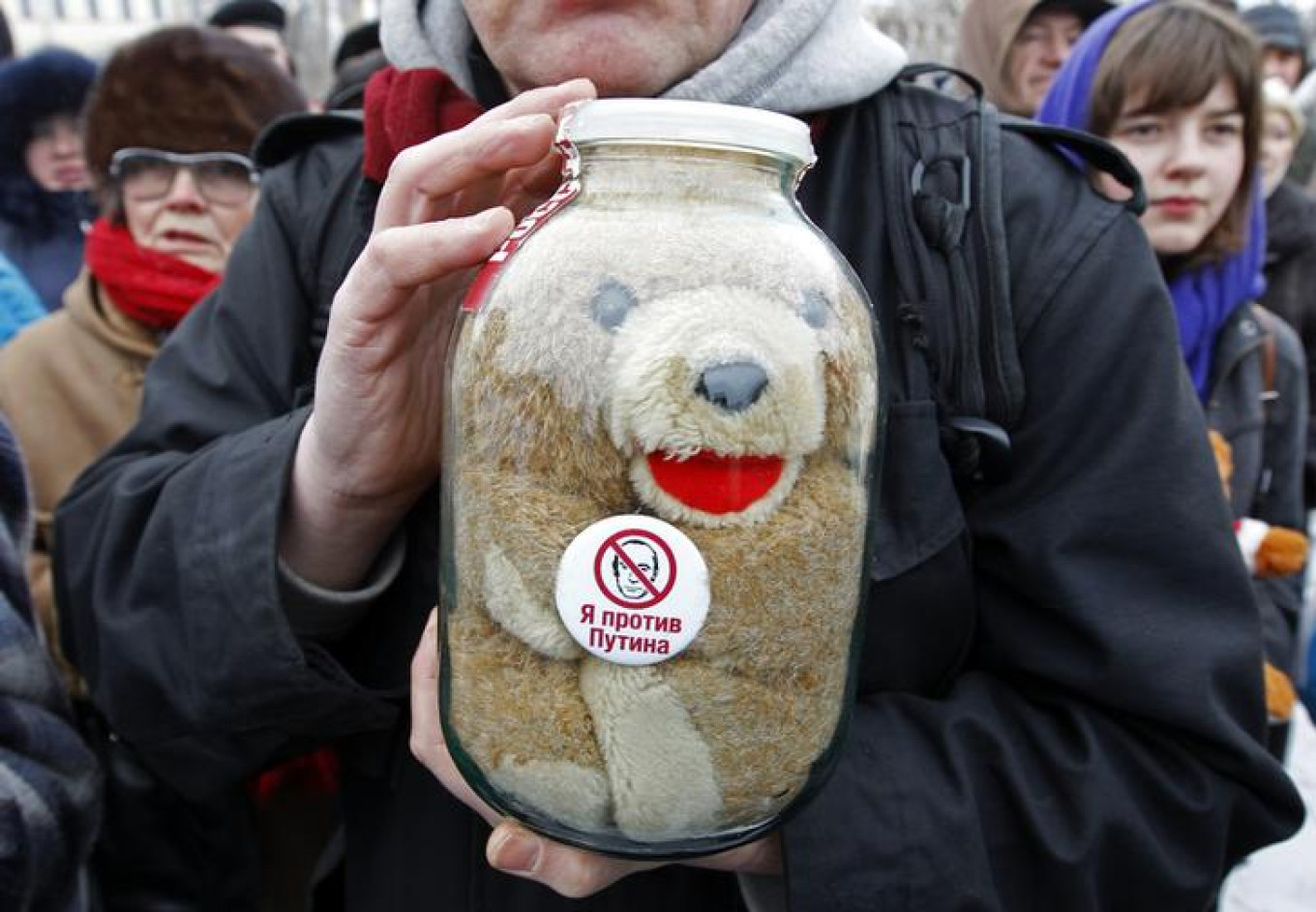
Missing Reports
After the 2013 ban, U.S. adoption agencies working exclusively with Russia shut down. Even so, agencies that adopted from other countries too continued to sent reports to Russia on behalf of the shuttered agencies.
One adoption agency executive that asked to remain anonymous told The Moscow Times that their last post-adoption report was sent to Russia three years after the ban, in March 2016. “We just kept the commitment we made three years earlier regarding post-placement reporting,” she said.
Some agencies didn’t know whether the Education Ministry would accept them, so they sent their reports to the Russian Embassy. “I have no idea what the Russian Embassy did with them,” the executive said.
While families in the United States were sending hundreds of reports on adopted children to Russia even after the ban took effect, Russia’s children’s rights ombudswoman Kuznetsova says that “more than a thousand” of Russian requests about their children’s well-being sent to the United States remain unanswered.
A spokesperson for
Kuznetsova later told The Moscow Times that the ombudswoman was speaking
“metaphorically” and actually meant that “thousands and thousands”
of requests were ignored by the U.S. Maria Olson, a spokesperson for the U.S. Embassy in Moscow, did not say whether the U.S. State Department ignored any requests from Russia regarding adopted children. “We take the welfare of children seriously and maintain ongoing communications with the Russian government to discuss specific, identifiable cases of concern whenever they arise,” she told The Moscow Times.
Further compounding the stalemate, Kuznetsova’s office is now insisting that foreign adoptive parents send the progress reports until adopted children turn 18 — not just during first three years following adoption as U.S. families have been doing. And “Right now, Russia is not receiving any reports,” her office told The Moscow Times.
This new regulation was only introduced in August 2013 and can’t be applied to U.S. families, says lawyer Yevgeni Korchago — precisely because of Russia’s ban on U.S adoption which came eight months before.
A decree issued by Russia’s Ministry of Education stipulates that the new regulations only apply to children whose adoption was finalized in court Sept. 3, 2013 — eight months after Russia’s ban. “Demanding these reports from parents who adopted their children before 2013 is illegal,” Korchago advises.
The Education Ministry, Russia’s government body responsible for collecting the reports, didn’t respond to The Moscow Times’ request for comments on whether there are any missing reports.
It is possible that many post-placement visits have not been reported to Russia since the adoption ban, admits Johnson from the U.S. National Council for Adoption.
“Now with so many adoption agencies closed and no more adoptions allowed, it is likely many reports are not being done. However, many American families and many dedicated adoption agencies are still trying to fulfill their obligations,” he told The Moscow Times. “I understand Russia’s frustration, but it is an unintended consequence of the ban imposed by Russia.”
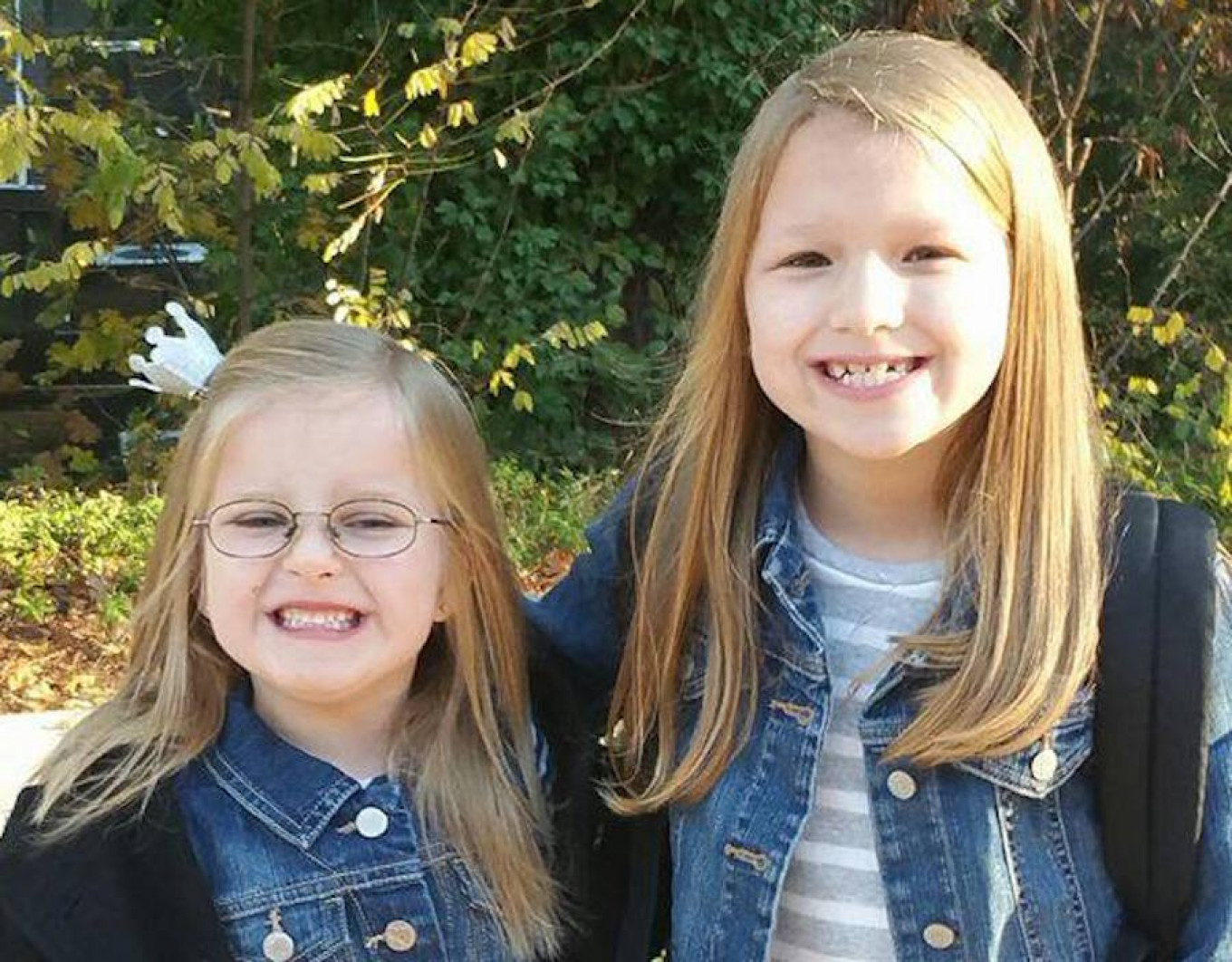
Doing Well
For Russian officials, this lack of oversight meant Russian children too often become victims of abuse in their American families.
“Lack of protection and safety of the adopted children has reached its boiling point,” said Valentina Matviyenko, chair of the Federation Council, in December 2012, days before the Dima Yakovlev law was signed by President Vladimir Putin. Russia must do whatever it takes to protect its children, she insisted.
Some 60,000 Russian children have been adopted by U.S. families since the early 1990s, according to the U.S. National Council for Adoption. In more than 20 years, there have been 19 deaths, Johnson says, and probably hundreds of disrupted adoptions.
“Each one of these deaths and disruptions are terrible tragedies and understandably reasons for outrage and concern,” he said. “But the great majority of Russian children adopted by American citizens are living happy, successful lives in loving and stable families.”
For Anne Lockard-Heirigs’ Russian daughters, 8-year-old Genevieve and 6-year-old Adelaide, this is certainly true.
But in 2010, during a court session finalizing one-year-old Genevieve’s adoption, Anne and her husband James were surprised to discover that Genevieve had a brother in another orphanage.
Soon after bringing Genevieve home, they started the process of adopting her brother Vitya, who was seven-years-old at the time. Preparing the documents took months. Then they had to switch their adoption agencies. Then the Kemerovo region, where Vitya lived, imposed its own, temporary adoption ban. Then the Dima Yakovlev law came into effect, putting a halt to all hopes for the brother and sister to reunite.
Vitya is now 15 years old. He still lives in an orphanage. Anne and James send him clothes, food and presents, correspond with him in Russian social network Vkontakte and occasionally Skype him with the girls.
Anne hopes the ban will be lifted soon — but admits it might be too late for Vitya. In several months, he will turn 16 and have to leave the orphanage. “Quite literally, he has nowhere to go,” says Anne. “[He] will probably be forced to live on the streets.”
Clarification: The previous version of this article inaccurately suggested that U.S. Embassy Spokesperson Maria Olson didn’t offer any comments.
A Message from The Moscow Times:
Dear readers,
We are facing unprecedented challenges. Russia's Prosecutor General's Office has designated The Moscow Times as an "undesirable" organization, criminalizing our work and putting our staff at risk of prosecution. This follows our earlier unjust labeling as a "foreign agent."
These actions are direct attempts to silence independent journalism in Russia. The authorities claim our work "discredits the decisions of the Russian leadership." We see things differently: we strive to provide accurate, unbiased reporting on Russia.
We, the journalists of The Moscow Times, refuse to be silenced. But to continue our work, we need your help.
Your support, no matter how small, makes a world of difference. If you can, please support us monthly starting from just $2. It's quick to set up, and every contribution makes a significant impact.
By supporting The Moscow Times, you're defending open, independent journalism in the face of repression. Thank you for standing with us.
Remind me later.


